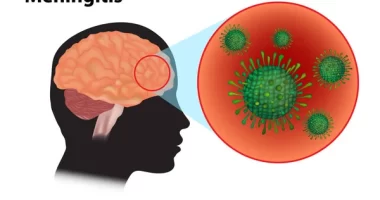Gene-based screening may fight colorectal cancer – A study has shown the promise of gene-based screening for the early detection of colorectal cancer (CRC). The study identified six genes that could serve as potential diagnostic markers for CRC and pan-cancer detection, with an average AUC of 0.855. This suggests that genetic testing and screening could play a significant role in the fight against colorectal cancer.
Colorectal cancer, also known as bowel cancer, colon cancer, or rectal cancer, is a disease where cells in the colon or rectum grow out of control. It’s one of the most common cancers worldwide, with approximately 3000 Finns diagnosed every year. While family history and specific genetic variations are known risk factors, many cases arise with no clear cause…
Colorectal cancer is common, but current risk assessment relies solely on family history and limited genetic testing. Many cases go undetected until later stages, reducing chances of survival. Researchers in Finland used genetic data from over 450,000 people to develop a “polygenic risk score” for colorectal cancer. This score predicts individual risk based on inherited genetic variations.
Findings
- The genetic test, a “polygenic risk score,” successfully identified individuals at both high and low risk of developing colorectal cancer.
- People with the highest risk score were almost four times more likely to develop the disease than the average population.
- Many diagnosed cases with no family history or known risk factors likely have high polygenic risk, suggesting current methods miss these individuals.
- Gene screening could personalize colonoscopy age and frequency, focusing on high-risk individuals for earlier detection.
- Early detection through genetic screening could lead to better treatment outcomes and higher survival rates for colorectal cancer patients.
This approach could significantly impact the fight against colorectal cancer, a common and deadly disease.
Impact and Future
- Gene screening could personalize the age and frequency of colonoscopies, starting earlier for high-risk individuals.
- Early detection leads to better treatment outcomes and higher survival rates.
This could significantly impact the fight against colorectal cancer. - Validate the polygenic risk score in larger studies.
- Integrate gene screening into existing healthcare systems.
- Develop tailored prevention strategies for high-risk individuals.
Overall, this research holds promise for a future where gene-based screening revolutionizes colorectal cancer detection, saving lives and improving public health.
Limitations
The limitations of gene-based screening for colorectal cancer include:
Limited predictive value: While genetic testing can identify individuals at higher risk of colorectal cancer based on their personal or family history, it may not accurately predict the development of cancer in all cases.
Complexity and cost: Genetic testing and counseling can be complex and expensive, which may limit their accessibility for some individuals.
Lack of standardization: There is no universally accepted standard for genetic testing and counseling, which can lead to inconsistencies in the interpretation and application of results.
Limited data on polygenic risk scores: While polygenic risk scores (PRS) have shown promise in risk stratification for colorectal cancer, more research is needed to optimally integrate PRS into risk-based screening.
First-generation stool DNA-based tests: These tests have limitations in practice, such as higher costs compared to other screening methods.
Despite these limitations, gene-based screening holds potential for improving colorectal cancer detection and prevention. Ongoing research and advancements in technology may help address some of these challenges and further enhance the effectiveness of gene-based screening for colorectal cancer[1]
ALSO READ: 5 genetic diseases more common In women base on statistics










